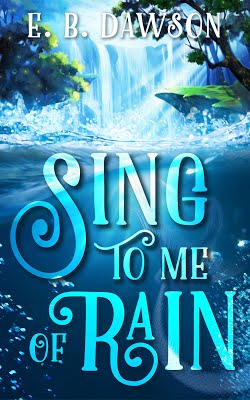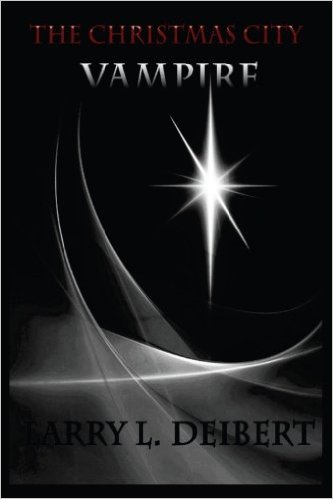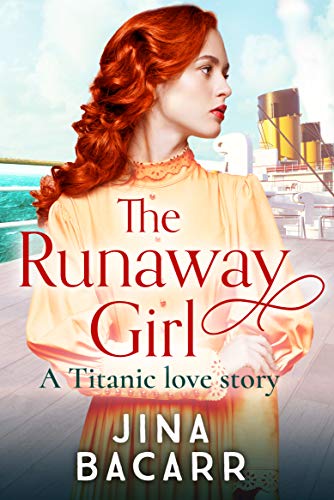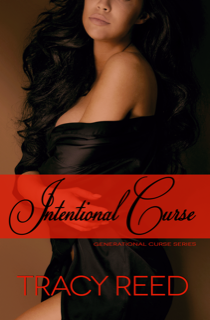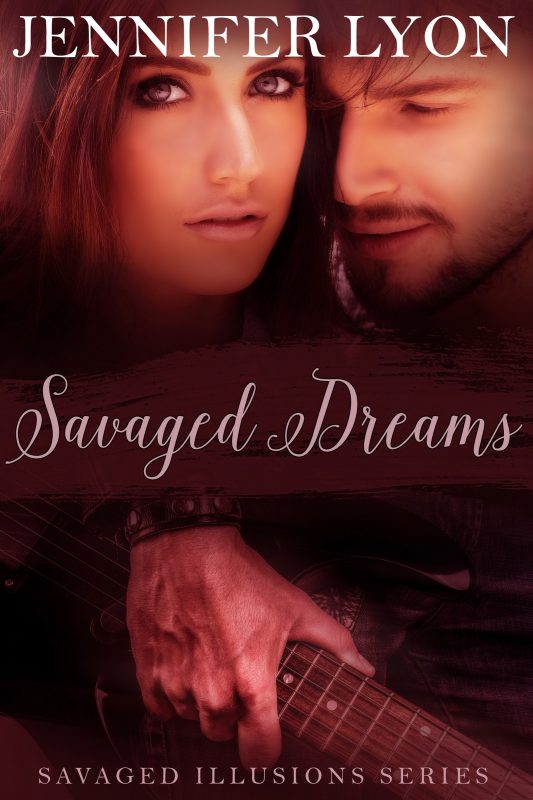First Loves…
June 28, 2025 by Alina K. Field in category Quarter Days by Alina K. Field, Writing tagged as Books for children, Mystery and adventure, Mystery series for children, reading
What books kicked off your love of reading?
Welcome to my Quarter Day’s post!
If you’re a fan of A Slice of Orange, I have to assume you love books and you love reading. How did your romance with books get started? This topic came up in a recent discussion in the Belles Brigade Facebook Group.
My first book binge was the Little House on the Prairie series, by Laura Ingalls Wilder, somewhat relatable for me, being a Midwestern girl whose grandparents lived on a farm. My second that I can remember was the Trixie Belden mystery series. I still love detective stories.


Lots of horses and more mysteries
Author Rue Allyn remembers reading The Black Stallion series by Walter Farley. I’m not sure why, but these books never crossed my radar. Maybe my local library didn’t have them. Another favorite for her though was the Nancy Drew series of mysteries.

Author Deborah Williams Craton loved the Bobbsey Twins, a preference shared by author Caroline Warfield who also mentioned the Misty of Chingoteague series by Marguerite Henry. Another series about horses that I’d never heard of. (What did my librarians have against horses?) Caroline also binged on Louisa Mae Alcott’s Eight Cousins and the sequel.

Stepping outside the U.S., Janet, one of the British members of the Belles Brigade said that she started her love of books with the Famous Five series by Enid Blyton. The first book, published in 1942 must have been a great escape read for British children enduring the fighting of World War II. (Janet came to it later, being too young for WWII.)

Moving to the Southern Hemisphere, New Zealand author Jude Knight loved The Adventures of Hutu and Kawa, by Avis Acres. Hutu and Kawa are two pohutukawa fairies, “who lived in the bush with friends such as Willy Weka and various pixies and elves.”

Mystery, Adventure, and Lots of Books in a Series
Many of the books mentioned are mysteries and most have at least some adventure. And the publishers were prolific, if not the original authors. Some of the series books were written by multiple ghost writers over a span of decades.
One of the first mysteries I read after finishing all the Trixie Belden books I could get my hands on was The Murders in the Rue Morgue, by Edgar Allen Poe. It scared the bejeebers out of me! I think I’m old enough now to read it again.
Do you have a favorite reading memory that’s not on this list? Share it in the comments please!
6 1 Read moreSocial Media in the Olden Days
March 28, 2025 by Alina K. Field in category Quarter Days by Alina K. Field, Writing tagged as historical fiction, political satire, Regency History, writing
First, an apology
Though this is meant to be a quarterly blog, last December completely got away from me. Apologies!
I’m back this quarter to talk about political memes, and since I write historical fiction, the old style ones known as caricatures.
Making Fun of Famous People
Before there were social media platforms, there were print shops like the one depicted above. And before there were social media moguls, there were print shop owners like Samuel Fores and Hannah Humphrey.
This print depicts Hannah’s shop, and below is a caricature of Hannah herself:


Though she may look a like a staid spinster in this picture, people flocked to her Georgian era London shop to stand outside and view the latest caricature satirizing the follies of the British ruling class, the French revolutionaries, and later, Napoleon.
And what fodder they had! Skilled artists like Thomas Rowlandson, Isaac Cruikshank, and Hannah’s particular friend, James Gillray made fun of the high and mighty: the young prime minister, William Pitt, the frugal King George III and his German wife, and others.
Here are the king and queen “enjoying a frugal meal”:

This may not seem so frugal to our modern eyes. As with many of the caricatures, some explanation is required, and author Alice Loxton provides one in her fabulous and cheeky new book, Uproar, Satire, Scandal & Printmakers in Georgian London:
Hannah Humphrey’s clients would have adored Gillray’s trail of clues…”They haven’t even lit a fire! In deepest winter! And look at the figure in the fireplace!” Instead of a roaring fire, the grate is filled with foliage of the season: snowdrops, holly and mistletoe. It’s so chilly that the carved figure in the fireplace has sprung to life, warming his hands in a muff…
Born for the camera…
Or should I say, born for the artist’s pen or the engraver’s etching tool, the burin.
Charles James Fox was a Whig politician who supported both the American Revolution, and the French Revolution–at least until the revolutionaries’ atrocities became unsupportable. A, short, stout hairy fellow, he was a favorite of the caricaturists. Here he is with his frequent opponent, the young, tall, thin, William Pitt, “Billy Lackbeard and Charley Blackbeard playing at Football”:

Another favorite subject for satire was the fellow we Regency fans call “Prinny”, the Crown Prince George, who upon his father’s descent into madness was named Regent until he succeeded to the throne as George IV. A grossly fat libertine whose only thought was for his own convenience and consumption, he was generally despised, as depicted in “A Voluptuary under the horrors of Digestion”:

Revolution!
Feelings in England about the revolution in France were mixed, but as news leaked out about French atrocities, the caricaturists went to work expressing and helping to shape public opinion in images like this one by James Gillray, “A Family of Sans-Culotts refreshing after the fatigues of the day”:

Sans-culotte, meaning “without breeches” was the name given to the lower class revolutionary rabble who wore trousers instead of the silk breeches of the upper classes. Gillray depicts them as completely without lower garments, and the family is sitting on and feasting on the bodies and body parts of the aristocrats they’ve killed that day. There’s even an aristocratic child being roasted on the spit and spare body parts for the next meal stored in the rafters. A ghoulish image indeed!
News about Books
Alice Loxton’s book, mentioned above, was my source for this blog. I highly recommend it.
And I have other news! I have two preorders available for books that will publish next autumn:
Her Impeccable Scoundrel
Book 44 in the multi-author Wicked Widows League Series

Anxious to save a cherished inheritance, Blythe Blatchfield, widowed Countess of Chilcombe, knows she must repair her reputation with the beau monde in order to face the powerful marquess challenging her dissolute husband’s will. She vows to resist handsome rogues like her late husband, and to never again give her trust so blithely. But when the new earl, absent from England for many years, finally appears, new rumors swirl around Blythe. Facing the loss of everything, she finds herself needing the help of an old enemy, the man whose interference years earlier led to her unhappy marriage, the new Earl of Chilcombe.
Called back to England to take up his late cousin’s title, diplomat Graeme Blatchfield is eager to see his cousin’s widow and learn for himself whether the rumors about the woman he once held a childish infatuation for are true. Having plunged into marriage with the last earl—Graeme’s fault for revealing their tryst—she’s been tainted by her husband’s decadence. Forced by matters of the estate to spend time together, he soon discovers the vulnerable and lonely woman underneath the society mask. Can he get her to forgive him—and more?
Preorder link: https://books2read.com/HerImpeccableScoundrel
And… Love’s Perilous Road, A Bluestocking Belles Collection with Friends

Travel, houseparties, smugglers, spies–and a mysterious highwayman. Who is the infamous Captain Moonlight? And how many lives will he change–for good or for ill?
My contribution to this collection is called Sir Westcott Steals a Heart, a sequel to my story in the Belles’ Desperate Daughters collection from a couple of years ago.
Preorder Link: https://books2read.com/u/mqx0W6
If you’ve read this far, thank you! I’ll see you in June for my next Quarter Day’s post!
2 2 Read morePeeking into the Past
September 28, 2024 by Alina K. Field in category Quarter Days by Alina K. Field tagged as Alina K. Field, Historical Research, Quarter Days
One of the most enjoyable things about writing historical fiction is falling down the research rabbit hole.
Yes, I know authors of contemporary fiction have to do research also. Not disrespecting other writers. Just saying that historical research is, in my view, lots more interesting.
I especially like to read memoirs, and collections of letters. I have a couple of print books in my memoir collection, and more that I picked up from Google Books and Project Gutenberg. Though social norms and societal expectations might have changed, people’s wants and desires haven’t changed that much.
Another print book recently came into my collection, from my sister who was shuffling her collection of books for a cross-country move. It’s our grandmother’s geography text from her school days:

Old like Us
I’m up there in years, and as I was the second youngest of all the many grandchildren, this book is also old. In fact, it’s from the century before last. It was copyrighted in 1897, and that’s the year Grandma received it, inscribing it with her name and “her Book, Dec. 26, 1897.”
What I love is that, like a kid from my generation, the grandma who I knew as a very old, very proper octogenarian doodled and scribbled on the interior and exterior covers. In one place there are her initials in a pin-point design; in another, a penciled flower drawing; and a math problem when she maybe ran out of scrap paper.

And then there are these schoolgirl ditties from others:
Remember me early
Remember me late,
Remember me at
The Golden Gate
And this one:
Dear friend,
Love me little
Love me long
Love me when
I’m dead and gone
And:
These few lines are tendered
By a friend sincere and true
Hoping but to be remembered
By an honest friend like you
And this last:
Dear Sister
When on this page
you chance to look
remember it was
your sister that
wrote this in your book.
That one is rather poignant, because grandma’s sister died the following year.
A Budding School Teacher
Grandma was seventeen when she acquired this book, and she went on to become a country schoolteacher before marrying, having six children, and carrying out her share of the responsibilities of running the family farm–gardening, canning, cooking, cleaning, clothing everyone, etc. Her only water was pumped from a cistern, and she cooked on a wood stove. It makes me tired thinking about it!
Do you have any old treasures like this in your personal collection? Share in the comments, please!
Have a wonderful autumn, and I’ll see you at my next Quarter Days post.
1 2 Read moreAlina K. Field July Featured Author
July 14, 2024 by Alina K. Field in category Featured Author, Featured Author of the Month tagged as Alina K. Field, Featured Author of the Month, Regency Romances

Award winning author Alina K. Field earned a Bachelor of Arts Degree in English and German literature, but her true passion is the much happier world of romance fiction. Though her roots are in the Midwest, after six very, very, very cold years in Chicago, she moved to Southern California where she shares a midcentury home with two furry four-legged girls and keeps a dependable stash of lollipops for the munchkins in her life.
She is the author of several Regency romances, including the 2014 Book Buyer’s Best winner, Rosalyn’s Ring. She is hard at work on her next series of Regency romances, but loves to hear from readers!
Visit Alina
In addition to Quarter Days, Alina’s quarterly column’s on A Slice of Orange, you can visit her at:
Books by Alina K. Field
Alina K. Field July Featured Author
July 1, 2024 by Alina K. Field in category Featured Author, Featured Author of the Month tagged as Alina K. Field, Featured Author of the Month, Regency Romances

Award winning author Alina K. Field earned a Bachelor of Arts Degree in English and German literature, but her true passion is the much happier world of romance fiction. Though her roots are in the Midwest, after six very, very, very cold years in Chicago, she moved to Southern California where she shares a midcentury home with two furry four-legged girls and keeps a dependable stash of lollipops for the munchkins in her life.
She is the author of several Regency romances, including the 2014 Book Buyer’s Best winner, Rosalyn’s Ring. She is hard at work on her next series of Regency romances, but loves to hear from readers!
Visit Alina
In addition to Quarter Days, Alina’s quarterly column’s on A Slice of Orange, you can visit her at:
Books by Alina K. Field
Affiliate Links
A Slice of Orange is an affiliate with some of the booksellers listed on this website, including Barnes & Nobel, Books A Million, iBooks, Kobo, and Smashwords. This means A Slice of Orange may earn a small advertising fee from sales made through the links used on this website. There are reminders of these affiliate links on the pages for individual books.
Search A Slice of Orange
Find a Column
Archives
Featured Books
SING TO ME OF RAIN
An innocent naiad. A wounded boy. An adventure that will change their lives forever.
More info →INTENTIONAL CURSE
Before Dr. Eric King was with Kyla, he chased Olivia Bennett.
More info →SAVAGED DREAMS
How much will she risk for love? How far will he go for fame?
More info →Newsletter
Contributing Authors
Search A Slice of Orange
Find a Column
Archives
Authors in the Bookstore
- A. E. Decker
- A. J. Scudiere
- A.J. Sidransky
- Abby Collette
- Alanna Lucus
- Albert Marrin
- Alice Duncan
- Alina K. Field
- Alison Green Myers
- Andi Lawrencovna
- Andrew C Raiford
- Angela Pryce
- Aviva Vaughn
- Barbara Ankrum
- Bethlehem Writers Group, LLC
- Carol L. Wright
- Celeste Barclay
- Christina Alexandra
- Christopher D. Ochs
- Claire Davon
- Claire Naden
- Courtnee Turner Hoyle
- Courtney Annicchiarico
- D. Lieber
- Daniel V. Meier Jr.
- Debra Dixon
- Debra H. Goldstein
- Debra Holland
- Dee Ann Palmer
- Denise M. Colby
- Diane Benefiel
- Diane Sismour
- Dianna Sinovic
- DT Krippene
- E.B. Dawson
- Emilie Dallaire
- Emily Brightwell
- Emily PW Murphy
- Fae Rowen
- Faith L. Justice
- Frances Amati
- Geralyn Corcillo
- Glynnis Campbell
- Greg Jolley
- H. O. Charles
- Jaclyn Roché
- Jacqueline Diamond
- Janet Lynn and Will Zeilinger
- Jaya Mehta
- Jeannine Atkins
- Jeff Baird
- Jenna Barwin
- Jenne Kern
- Jennifer D. Bokal
- Jennifer Lyon
- Jerome W. McFadden
- Jill Piscitello
- Jina Bacarr
- Jo A. Hiestand
- Jodi Bogert
- Jolina Petersheim
- Jonathan Maberry
- Joy Allyson
- Judy Duarte
- Justin Murphy
- Justine Davis
- Kat Martin
- Kidd Wadsworth
- Kitty Bucholtz
- Kristy Tate
- Larry Deibert
- Larry Hamilton
- Laura Drake
- Laurie Stevens
- Leslie Knowles
- Li-Ying Lundquist
- Linda Carroll-Bradd
- Linda Lappin
- Linda McLaughlin
- Linda O. Johnston
- Lisa Preston
- Lolo Paige
- Loran Holt
- Lynette M. Burrows
- Lyssa Kay Adams
- Madeline Ash
- Margarita Engle
- Marguerite Quantaine
- Marianne H. Donley
- Mary Castillo
- Maureen Klovers
- Megan Haskell
- Melanie Waterbury
- Melisa Rivero
- Melissa Chambers
- Melodie Winawer
- Meriam Wilhelm
- Mikel J. Wilson
- Mindy Neff
- Monica McCabe
- Nancy Brashear
- Neetu Malik
- Nikki Prince
- Once Upon Anthologies
- Paula Gail Benson
- Penny Reid
- Peter J Barbour
- Priscilla Oliveras
- R. H. Kohno
- Rachel Hailey
- Ralph Hieb
- Ramcy Diek
- Ransom Stephens
- Rebecca Forster
- Renae Wrich
- Roxy Matthews
- Ryder Hunte Clancy
- Sally Paradysz
- Sheila Colón-Bagley
- Simone de Muñoz
- Sophie Barnes
- Susan Kaye Quinn
- Susan Lynn Meyer
- Susan Squires
- T. D. Fox
- Tara C. Allred
- Tara Lain
- Tari Lynn Jewett
- Terri Osburn
- Tracy Reed
- Vera Jane Cook
- Vicki Crum
- Writing Something Romantic
Affiliate Links
A Slice of Orange is an affiliate with some of the booksellers listed on this website, including Barnes & Nobel, Books A Million, iBooks, Kobo, and Smashwords. This means A Slice of Orange may earn a small advertising fee from sales made through the links used on this website. There are reminders of these affiliate links on the pages for individual books.





























